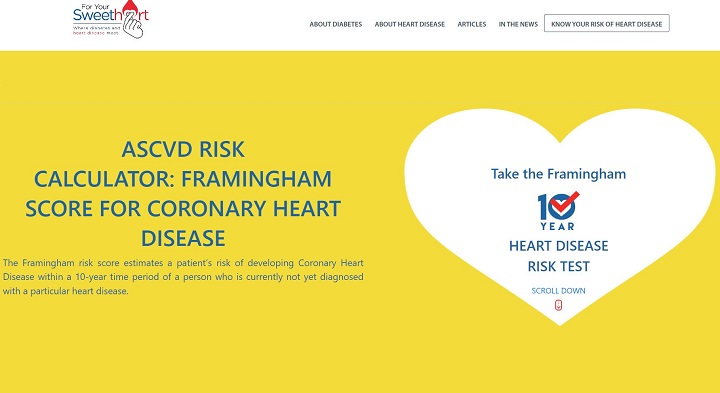Doctors and other health industry experts are sounding the alarm over the surges in deaths due to heart disease and diabetes over the past two years.
Data from the Philippine Statistics Office show that ischemic heart disease was the top cause of death in the Philippines in 2020 and 2021.
In fact, the number increased from over 95,000 in 2020 to almost 126,000 in 2021. Meanwhile, fatalities from diabetes mellitus marked a 22 percent increase to 44,000 in 2021.
These findings were highlighted in the recent “Confessions of a Sweet Talker: How Your Sweet Tooth Can Cause Heartaches” media briefing of For Your Sweetheart Philippines, a nationwide movement among health industry stalwarts, initiated by Boehringer Ingelheim Philippines, to raise awareness on the critical link between diabetes and heart disease.

Panelists in the event cited lifestyle changes caused by pandemic trends and restrictions as one of the most likely causes for the increases in these medical conditions.
“Pandemic lockdowns and quarantines have seriously impacted the health of many Filipinos by limiting their movement and keeping them from engaging in exercise,” noted Philippine Heart Association (PHA) secretary, Dr. Rodney Jimenez. “And this was exacerbated by heightened anxiety, as well as the availability of streaming services and social media.”
Online health risk assessment tools
Hypertension and diabetes are preventable. In fact, there are simple online tools that people can use to get an indication of any health risks they may have.
One such tool, called the Framingham Assessment Test, is a web-based written exam that computes the risk for developing cardiovascular disease based on a series of information including cholesterol levels and blood pressure. The test is free and anyone aged 30 to 74 can take it to find out if they are at risk of getting a heart attack within 10 years.
“Accessible online tools like the Framingham Assessment Test help provide a picture of one’s health prior to consulting a doctor,” said Ms. Leyden Florido, President of Philippine Association of Diabetes Educators. “Results can be brought to a doctor for proper interpretation and necessary action.”
The Framingham Assessment Test takes only 10 minutes and can be found at www.foryoursweetheart.ph. Even people without a history of heart ailments are encouraged to take it.
Return to regular consultation
Other panelists in the event noted that many people may not be aware that diabetes can lead to heart disease.
“A lot of Filipinos living with diabetes don’t realize that if they don’t learn to manage their condition properly, it can lead to heart disease,” said Dr. Pasaporte, president of Diabetes Philippines. “This is especially true for people who have vices, are hypertensive and unmindful of their diet, and lead a sedentary lifestyle.”
He added that to manage the medical conditions and bring down the number of deaths from diabetes and heart disease, Filipinos need to go back to their healthy lifestyle or change their behavior altogether.
“They also need to go back to seeing their doctors,” added Philippine College of Endocrinology, Diabetes and Metabolism (PCEDM) President, Dr. Carolyn Narvacan-Montano. “We’re in the new normal now. While online consultation remains a good option to get medical attention, hospitals and clinics can once again accept patients with other conditions by putting in place policies and measures that will protect the health and safety of everyone coming in their building against COVID-19. The best way to know how to keep your diabetes in control and from developing heart disease is still to see your doctor regularly.”
First launched in 2020, For Your Sweetheart PH aims to continuously educate Filipinos about the correlation between diabetes and heart disease, as well as how to properly manage the condition. The campaign is supported by the Philippine Heart Association (PHA), the Philippine College of Endocrinology, Diabetes and Metabolism (PCEDM), Alliance of Clinical Endocrinologists (ACE), Diabetes Philippines (DP), Institute for the Studies of Diabetes Foundation (ISDF), Philippine Association for Diabetes Educators (PADE), and Philippine Alliance Patient Organizations (PAPO).

